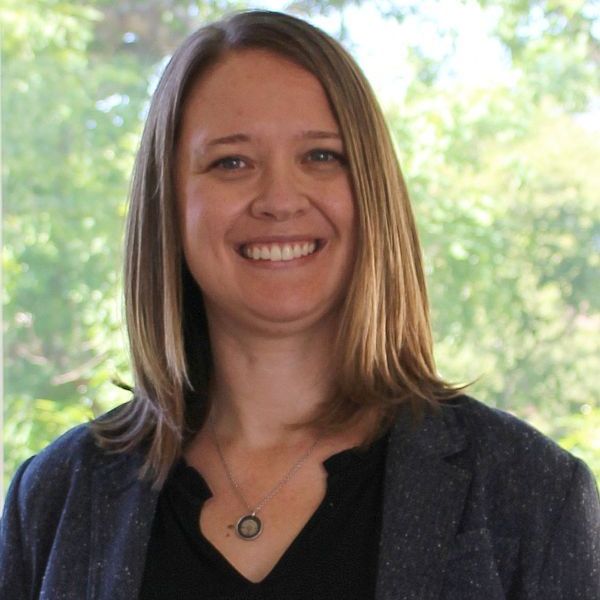Faisal Alamgir

Energy Conversion, energy storage, nanomaterials, optical materials, photovoltaics, catalysis, electrical grid, energy storage

Energy Conversion, energy storage, nanomaterials, optical materials, photovoltaics, catalysis, electrical grid, energy storage

Blair Brettmann received her B.S. in chemical engineering at the University of Texas at Austin in 2007. She received her Master’s in chemical engineering practice from MIT in 2009 following internships at GlaxoSmithKline (Upper Merion, PA) and Mawana Sugar Works (Mawana, India). Blair received her Ph.D. in chemical engineering at MIT in 2012 working with the Novartis-MIT Center for Continuous Manufacturing under Professor Bernhardt Trout. Her research focused on solid-state characterization and application of pharmaceutical formulations prepared by electrospinning. Following her Ph.D., Brettmann worked as a research engineer for Saint-Gobain Ceramics and Plastics for two years. While at Saint-Gobain she worked on polymer-based wet coatings and dispersions for various applications, including window films, glass fiber mats and architectural fabrics. Later, Brettmann served as a postdoctoral researcher in the Institute for Molecular Engineering at the University of Chicago with Professor Matthew Tirrell. Currently, Brettmann is an assistant professor with joint appointments in chemical and biomolecular engineering and Materials Science and Engineering at Georgia Tech.
Pharmaceuticals, polymer and fiber, printing technologies, polymers, nanocellulose applications, new materials, wet-end chemistry, manufacturing, biotechnology, cellulosic nanomaterials, chemistry, biomaterials, aerogels and hydrogels, coating, coatings and barriers, films and coatings

Antonio Facchetti obtained his Laurea degree in Chemistry cum laude and a Ph.D in Chemical Sciences from the University of Milan. In 2022 he joined the School of Material Science and Engineering at Georgia Tech. He is a co-founder and the Chief Technology Officer of Flexterra Corporation.
Facchetti has published more than 600 research articles, 14 book chapters, and holds more than 120 patents (H-index 141). He received the 2009 Italian Chemical Society Research Prize, the team IDTechEx Printed Electronics Europe 2010 Award, the corporate 2011 Flextech Award. In 2010 was elected a Kavli Fellow, in 2012 a Fellow of the American Association for the Advanced of Science (AAAS), in 2013 Fellow of the Materials Research Society, in 2015 he became a Fellow of the Royal Society of Chemistry, and in 2016 a Fellow of the ACS Polymeric Materials Science and Engineering. In 2010 he was selected among the "TOP 100 MATERIALS SCIENTISTS OF THE PAST DECADE (2000-2010)" by Thomson Reuters and in 2015-2023 recognized as a Highly Cited Scientist. In 2016 he has been elected a Fellow of the National Academy of Inventors and was awarded the 2016 ACS Award for Creative Invention. In 2017 he was awarded the Giulio Natta Gold Medal from the Italian Chemical Society for his work on polymeric materials and in 2019 he was inducted into the Advanced Materials Hall of Fame. In 2025 he was elected to the National Academy of Engineering. Facchetti’s research interests include organic semiconductors and dielectrics for thin-film and electrochemical transistors, metal oxides, conducting polymers, molecular electronics, sensors, batteries, and photovoltaics.

Meisha L. Shofner is a professor in the School of Materials Science and Engineering at Georgia Institute of Technology, joining the faculty following post-doctoral training at Rensselaer Polytechnic Institute. She received her B.S. in Mechanical Engineering from The University of Texas at Austin and her Ph.D. in Materials Science from Rice University. Prior to beginning graduate school, she was employed as a design engineer at FMC in the Subsea Engineering Division, working at two plant locations (Houston, Texas and the Republic of Singapore), and she is a registered Professional Engineer in Georgia.
Shofner’s research area is processing-structure-property relationships of polymers and composites. Specifically, she designs processing strategies to attain hierarchical structures in these materials to improve properties and has discovered scalable processing methods to produce auxetic structures and tensegrity-inspired structures. Additionally, she works with bioderived materials to produce composites with reduced environmental impact.
Biomolecular-Solids; Biomaterials; Composites; Polymers; Nanomaterials; Biofuels; Structure-property relationships in polymer nanocomposite materials; producing structural hierarchy in these materials for structural and functional applications.

Anju Toor is a researcher in nanomaterials for energy systems. She was a Bakar Innovation Fellow at the University of California, Berkeley, and worked on printed on-chip integrated micro batteries. She earned an M.S. in Electrical Engineering and a Ph.D. in Mechanical Engineering at University of California, Berkeley.
Her research focuses on advanced energy materials, printed electronics, energy storage systems, and nanoparticle self-assembly. She has led research on flexible and stretchable batteries for next-generation Augmented/Virtual Reality applications at Meta Reality Labs. She was named EECS Rising Star and selected for The Rising Stars Women in Engineering Workshop in Asia.
As an expert in self-assembly and energy materials, she has published over 20 research publications in the most reputed platforms in the field.
Research Areas: Composites, Fibers, Nanostructures, Polymers
Research Challenges: Electronics and Communications, Energy, Environment
Research Activity: Measurements, Processing, Fabrication, & Manufacturing, Synthesis

Erin L. Ratcliff is a Full Professor in the School of Materials Science and Engineering and the School of Chemistry and Biochemistry at the Georgia Institute of Technology and holds a joint appointment at the National Renewable Energy Laboratory. Prof. Ratliff is also the Associate Director of Scientific Continuity for Director of the currently funded Energy Frontier Research Center (EFRC) entitled “Center for Soft PhotoElectroChemical Systems (SPECS)”, a center which she directed at her prior appointment at University of Arizona.
Her group “Laboratory for Interface Science for Printable Electronic Materials” uses a combination of applications and devices with electrochemistry, spectroscopies, microscopies, and synchrotron-based techniques to understand fundamental structure-property relationships of next-generation materials for energy conversion and storage and biosensing. Materials of interest include metal halide perovskites, π-conjugated materials, colloidal quantum dots, and metal oxides. Current research is focused on mechanisms of electron transfer and transport across interfaces, including semiconductor/electrolyte interfaces and durability of printable electronic materials.
Her research program has been funded by the Department of Energy Basic Energy Sciences, the Solar Energy Technology Office, Office of Naval Research, National Science Foundation, and the Nano Bio Materials Consortium.

Jason Azoulay is an organic, organometallic and polymer chemist and internationally recognized leader in developing emerging semiconductor materials and devices. He has made significant contributions to the fields of polymer chemistry and materials science,bridging fundamental chemistry with real-world applications. His work focuses on the design, synthesis and characterization of advanced functional materials across numerous technology platforms, with an emphasis on organic semiconductors and conjugated polymers.
Azoulay co-directs the Center for Organic Photonics and Electronics, and his lab adds great strength to Georgia Tech’s leadership in soft-matter and hybrid optoelectronics. His work also complements numerous efforts at Georgia Tech that develop and apply advanced functional materials.

Suman Datta is the Joseph M Pettit Chair of Advanced Computing and Georgia Research Alliance (GRA) Eminent Scholar and Professor in the School of Electrical and Computer Engineering at Georgia Tech. He received his B.Tech degree in electrical engineering from the Indian Institute of Technology, Kanpur, India, and his Ph.D. degree in electrical and computer engineering from the University of Cincinnati, Ohio. His research group focuses on semiconductor devices that enable new compute models such as in-memory compute, brain-inspired compute, cryogenic compute, resilient compute etc.
From 2015 to 2022, Datta was the Stinson Endowed Chair Professor of Nanotechnology in the Electrical Engineering Department at the University of Notre Dame, where he was the Director of a multi-university microelectronics research center, ASCENT, funded by the Semiconductor Research Corporation (SRC) and the Defense Advanced Research Projects Agency (DARPA). Datta also served as the Director of a six-university research center for Extremely Energy Efficient Collective Electronics (EXCEL), funded by the SRC and National Science Foundation (NSF) to explore an alternate computing hardware that leverages continuous-time dynamics of emerging devices to execute optimization, learning, and inference tasks.
From 2007 to 2015, he was a Professor of Electrical Engineering at The Pennsylvania State University, where his group pioneered advances in compound semiconductor-based quantum-well field effect transistors and tunneling field effect transistors.
From 1999 to 2007, he was in the Advanced Transistor Group at Intel Corporation, where he led device R&D effort for several generations of high-performance logic transistors such as high-k/metal gate, Tri-gate and strained channel CMOS transistors. He has published over 425 journal and refereed conference papers and holds more than 187 issued patents related to semiconductor devices. In 2013, Datta was named a Fellow of the Institute of Electrical and Electronics Engineers (IEEE) for his contributions to high-performance advanced silicon and compound semiconductor transistor technologies. In 2016, he was named Fellow of the National Academy of Inventors (NAI) in recognition of his inventions that have made a tangible impact on quality of life, economic development, and the welfare of society.
High-performance heterogenous compute with advanced CMOSBrain-inspired collective state computing with advanced CMOS and beyond-CMOS semiconductorsEmerging semiconductors like ferroelectric field effect transistors, insulator-to-metal phase transition oxides, high mobility semiconducting oxides for near and in-memory compute and storageSemiconductors for cryogenic computing and harsh environment computing

Thadhani joined the faculty in the School of Materials Science and Engineering at Georgia Tech in September, 1992. His research focuses on studies of shock-induced physical, chemical, and mechanical changes for processing of novel materials and for probing the deformation and fracture response of metals, ceramics, polymers, and composites, subjected to high-rate impact loading conditions. He has developed state-of-the-art high-strain-rate laboratory which includes 80-mm and 7.62-mm diameter single-stage gas-guns, and a laser-accelerated thin-foil set-up, to perform impact experiments at velocities of 70 to 1200 m/s. The experiments employ time-resolved diagnostics to monitor shock-initiated events with nanosecond resolution employing piezoelectric and piezoresistive stress gauges, VISAR interferometry, Photonic-doppler-velocimetry, and high-speed digital imaging, combined with the ability to recover impacted materials for post-mortem microstructural characterization and determination of other properties. He has built computational capabilities employing continuum simulations for design of experiments and development and validation of constitutive equations, as well as for meso-scale discrete particle numerical analysis (using CTH and ALE3D codes) to determine the effects observed during shock compression of heterogeneous materials, using real microstructures.
deformation and degradation; fracture and fatigue; Ceramics; Materials Failure and Reliability; Materials In Extreme Environments; Materials Testing

Speyer joined the MSE faculty in August, 1992 after serving on the faculty at the New York State College of Ceramics at Alfred University for six years. He has written one book (Thermal Analysis of Materials), with another one on the way, published over 125 refereed papers and has given over 150 technical presentations.
His present research group consists of seven graduate students and one Ph.D-level scientist. Dr. Speyer’s research has been funded by Navy, ARO, AFOSR, DARPA, Gas Research Institute, and private industry. He was previously the president of Innovative Thermal Systems, a thermoanalytical scientific instrument company, and is presently the President of Verco Materials, a start-up company which will manufacture boron carbide armor .
He teaches courses in Chemical Thermodynamics of Materials, Thermal and Transport Properties of Materials, and Ceramic Technology.
Thermal management; Ceramics; Modeling; Fabrication